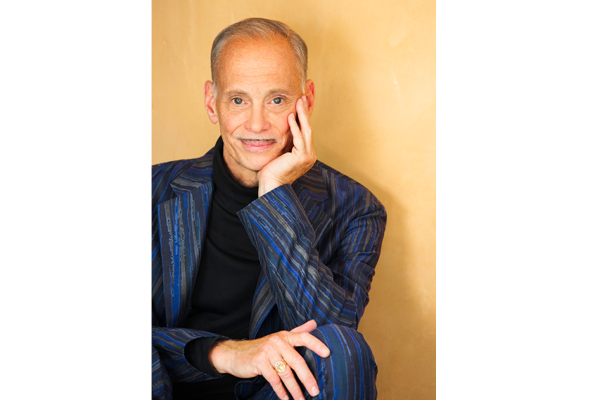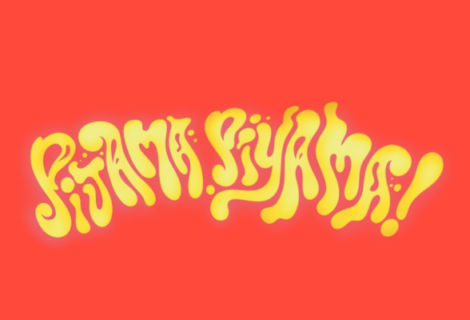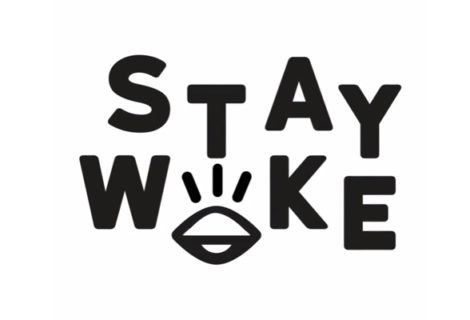Questions Answered By The Prince of Puke
When we found out John Waters was doing stand-up at the Celebrity Theatre we almost choked with happy vomit.
I’ve been friend-crushing on this man for most of my life thanks to a really bad copy of Pink Flamingo in a used up tape someone left inside our PV-1225 VCR when I was a kid. My innocence was taken from me that day by Divine and Waters, and I thank them both for it.
The acclaimed auteur, writer, and most of all, storyteller, was generous enough to have a chat about transgressions, pop culture, the film industry, his never-ending desire to create, being a sustainable artist, and “This Filthy World,” an ever-evolving stand up he’s been doing for ages.
La Phoenikera: You’ve been in Phoenix before.
John Waters: Yes, many times before, last time I was there it was probably with the Christmas show.
LP: I’m assuming not during summer, it can get hellish.
JW: You mean weatherwise, because politically can be tough too, you’ve been getting bad press for some time now.
LP: Yeah, it’s tough on many fronts. Do you like Phoenix?
JW: Yes, but you know when I’m on these tours I get to see my fans, that’s the only thing I see: the hotels and fans, it has become all about my fans.
LP: If you had to relocate where would you go?
JW: Boise, Idaho, because that’s the end of Pink Flamingo when Divine says “We’re the filthiest people alive, let’s move to Boise, Idaho.” And I actually went there with the show finally after 25 years and I got to say it on stage: “Boise, Idaho get ready because you’re about to receive the filthiest people alive.” So Maybe I’d go there because I wouldn’t know anybody and nobody would ever think I was there, I might like it there.
LP: As a storyteller what stories do you seek for your own amusement?
JW: I eavesdrop on people all the time, I love to hear what people say […] I watch people, all writers do that, you just have to listen and people say things and use different words; I heard a good word the other day, it was “lesbro,” which is a man who hangs out a lot with lesbians. I’m just interested in human behavior, especially the one I cannot understand.
LP: Like what?
JW: People in radical cults, I’m interested in that because for a while people are happy and then when it gets terrible they’re too far gone to realize it. So I wonder how people recover from that.
LP: You also taught in prisons so you had a lot of material there.
JW: Yes, that was because I’m interested in prisoners’ rights and some inmates can never get better and others can, so I’m interested in that.
LP: You mentioned prison rights and I have to ask about Kamala Harris, what do you think about her?
JW: She’s terrible about it, she made it so that in California the parol could go […] I think it used to be every three years that you could have a hearing and she made it up to 5 or 10, so I’m pretty much against her for that.
LP: Election day is today, who gets your vote for POTUS?
JW: Anyone against Trump. Do I think any of them are strong enough to win? Unfortunately, I don’t.
LP: So, our future is grim…
JW: Yes, I’m terrified, I’m going to watch the debate tonight, I think each one is weak in a way, I wish it wasn’t so, but they’re going to fight each other in the next few weeks and debate ridiculous subjects. Then they’re going to destroy themselves and that only helps Trump.
LP: Let’s move away from that kind of filth. How were your parents growing up?
JW: I was lucky I had parents that made me feel safe, but you can’t pick your parents, and you can’t really complain about them after you’re 30 years old, move on!
LP: What constitutes a good story?
JW: A great story is about someone’s behavior that is so astonishing that you ask yourself “why would someone do that?” So desperate, so bold or crazy that it goes beyond rhyme or reason.
LP: What qualities do you admire in a storyteller?
JW: Brevity, being able to articulate quickly and to the point, the worst thing is when someone says to you “have you ever watched this television show?” and they end up telling you the whole plot in a long boring way, that is torture.
LP: So you’re not a fan of long movies?
JW: I am, I’ve seen movies that are 5 hours long, but no, I don’t think there’s such a thing as a good long comedy, humor is brevity.
LP: Can you name a comedy film you’ve recently liked.
JW: I have my “ten best list” every year on Art Forum, but I don’t usually like comedies. Sometimes I think a movie is so outrageous that it’s kind of funny, like Gaspar Noe’s Climax. It’s about this terrible LSD trip and it’s one of my favorite movies. It is so shocking and crazy that it is funny in a way, but then again, I might have been the only person laughing.
LP: Your storytelling, independent of which medium it manifests in, has always held a mirror to society and pop culture. Do you think every artist should be a transgressor?
JW: No, but the artists that I like are. It has to come naturally. A lot of times critics say that a movie is John Waters-esque and I usually hate that movie because it means it’s gross or they’re trying too hard. You can never appear to try too hard, and if you do use something gross or something shocking, you have to use it to get people’s attention, to change their minds about something they hadn’t considered before. The best way to ever get to do that is to make someone laugh, and then they’ll listen.
LP: A vast number of filmmakers say comedy is the hardest genre to shoot, would you agree?
JW: It’s all I’ve ever done! Movies, stand-up […] I’ve never written a serious drama and I think people might start laughing even if I tried, so comedy to me is not the hardest but only because I haven’t tried the others. I just think I’m better at writing comedy. Laughter is how I didn’t get beat up in school because I could make people laugh. They thought I was crazier than they were. Humor has been my protection throughout my whole life.
LP: What do you protect yourself from these days?
JW: Bad hair!
LP: What’s your favorite genre?
JW: Feel-bad foreign movies, Gaspar Noé type, Bruno Dumont, Ana Lily Amirpour, Lars Van Trier.
LP: Your work has been revered, trashed, demonized and everything in between. At this point in your life, are you motivated by the negativity of people who critique your art or by those who love and treasure it?
JW: That only works when you’re young, bad reviews when you’re young help, and you embrace them and you can build a career from them. A bad review today on me would hurt. So no, I don’t embrace them. I can live with them, I had good and bad reviews all my life. So far I haven’t had a bad review on this last book.
LP: Does your creative process change based on the medium?
JW: No, it’s the same no matter what I’m writing. I go in Monday to Friday from 8:00 a.m. to 11:30 and I write every day. I don’t look at my emails, don’t answer the phone, and that’s a complete habit. I’d feel guilty if I didn’t do that. I think about fucked up things in the morning and sell them in the afternoon.
LP: If you zero in on a story you want to tell, do you immediately know what medium will be used to tell it?
JW: No, usually medium comes first […] Although I’m writing a novel because I signed a two-book deal with the publisher that did Mr. Know It All, and that idea was at one time a movie. So yes, I can take ideas and put them in my different cubby holes, for books, for movies, spoken word, for art. But they can end up in a different cubby hole.
LP: What’s the idea behind Mr. Know It All…?
JW: Well, I wanted to just share my negotiation skills of 50 years that have let me get away with this. Share with other people that are fucked up too, that they can try it too in a good way if they just stick to it and are organized and learn how to negotiate through all the different minefields of any kind of career in the arts.
LP: How much do you rewrite?
JW:For this book, it was about six drafts, it took three years, it had more chapters, but sometimes you have to write chapters to understand you don’t need them. Sometimes when you cut a bad idea, the good ones work even better. For my other stuff like stand-up, I’m always rewriting.
LP: What is This Filthy World?
JW: It’s my current opinion on fashion, politics, crime, movies. I use movies as kind of an outline to talk about what’s going on around the world today and so it’s always changing.
LP: What’s the state of the film industry?
JW: It’s pretty shaky, the independent world where I started is almost over or at least what I knew of it. The days of pitching and getting a development deal to make an independent movie that was routinely budgeted at 7 million dollars are going. That almost never happens anymore, so yeah, they say “oh I can make movies for a million,” which you know, I made 17 movies. I can’t really go to people and say “would you work for nothing? I’m just starting out.” You can’t be an anarchist at 73.
LP: Are we lacking films that shake up our sensibilities as a society?
JW: No, we still have them and kids are making them just as I made them, kids are having so much fun making weird films as much as I did. Sometimes they’re in Europe, because in Europe governments finance those movies. Here, our government would pay to stop them. I mean yes you have Harmony Korine, Todd Solondz, Todd Phillips, Matt Porterfield.
LP: Are you subscribed to any streaming service?
JW: Yes, Netflix, but I usually get screeners because I do my top ten for Art Forum. I still pay for movies though, I’ll probably go and watch the new Jim Jarmusch movie this weekend. I like to pay to see friends’ movies, that’s the best friendship payment you can make.
LP: Do you think that streaming services are more accessible platforms for filmmakers?
JW: These days it seems like it. More people will see it and sometimes you get paid the best. To me, I don’t care how anybody watches a movie or where. I don’t care if they watch it on their phone or in a movie theater, as long as they watch it. That’s what counts and that’s always going to be changing.
LP: Do you think this world is filthy?
JW: Well, when I use the word “filth” it’s as a positive word that means “a comic way to have an edge.” So if we put it that way, my world is.
LP: Can you expand a little bit on this notion of “filth?”
JW: Filth to me is like when they had the camp ball this year at the MET […] I never thought Divine was camp, Divine was punk. So camp became trash, they called it kitsch in Europe, and that became filth, which is more of a punk rock word, and now all that stuff is just American humor, it’s on television, it’s basically normal American humor now.
LP: What do you think is your biggest contribution to the arts?
JW: That I made bad taste one percent more respectable.
John Waters will present This Filthy World on Sunday, June 30th at the Celebrity Theatre in Phoenix.
WHEN: 6/30 7:30 p.m.
WHERE: Celebrity Theatre, 440 N. 32nd St. Phoenix, AZ 85008
HOW MUCH: $30 – $100.





